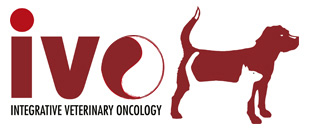One of the most frustrating conditions to treat in dogs and cats is allergic skin disease, also known as “atopy” or “atopic dermatitis.” Allergic skin disease may be caused by external parasites, food allergies, contact irritants or inhaled allergens. Inhaled allergens are the most common cause of atopy in pets. In dogs, skin allergies may cause itching, licking, recurrent ear and/or skin infections, hair loss and body odor. In cats, allergic skin disease most often manifests as multiple little scabs around the head, neck and along the center line of the back (also called military dermatitis).
It is unknown why some animals over-respond to allergens in the environment. Genetics, skin type/chemistry, stress, anxiety, thyroid hormones, sex hormones, and sebaceous glands may all be factors. The skin reaction may range from mild to severe. Western medicine treatment of atopy can be frustrating because there is no easy cure. Most western medications (steroids, antihistamines, Atopica) aim to suppress the immune system response to the allergen. However, potent suppression of the immune system comes at a price. Most of these medications have side effects, especially if used long term. Steroids may cause weight gain, kidney, heart and liver damage. The veterinary community is also now beginning to believe that long term use of Atopica can predispose dogs and cats to the development of cancer, particularly lymphoma.
Traditional Chinese medicine (TCM) in most patients will succeed when western treatments have failed. The approach of TCM is to “rebalance the patient” and resolve clinical symptoms. This is achieved with a combination of Chinese herbal medicine and Food Therapy. Acupuncture may be used in some patients. TCM relies on a “pattern diagnosis” which involves examination of the tongue and pulse characteristics in combination with clinical history. Knowledge of the pattern diagnosis guides the selection of herbals and food therapy recommendations. Although several different patterns of skin allergies exist, the most common patterns involve Heat with or without Dampness.
Heat is manifested by red skin, ears, and tongue. Dogs often pant excessively even in a cool environment. The pet may seek cool places, preferring to lay on tile rather than carpet or bedding. In patients that have dampness, the skin is often greasy and smelly. These patients often have a history of chronic recurring skin and/or ear infections. The goal of TCM is to eliminate heat and damp from the body therefore relieving the itching. An appropriate herbal combination will be recommended based on the pet’s pattern diagnosis. In TCM, food has energy. Food may be warming, neutral or cooling. Food may also moisten the body or may be drying. Most pets will require a diet of cooling or neutral foods in addition to the herbals. If a patient has dampness, foods may be included that counteract or drain dampness.
TCM will take time to be effective. Most owners will notice an improvement in their pet’s skin condition within 30-90 days. Patients are examined monthly to assess response to therapy. Treatments may need to be altered during this time. Some patients will need a higher dose of herbals to achieve the desired effect and some patients will respond better to a different combination of herbals. Good control may take 6 months or longer. Some patients may be controlled on TCM alone while others may need a combination of TCM with Western medications. However, the dose of the western medicine can often be reduced when used in combination with TCM.
Once the skin allergies are considered controlled, reexamination may be extended to every 3-6 months. Some patients may be able to discontinue herbs and maintain control on food therapy alone while others may need long term herbal treatment. However, there are no expected side effects with long term herbal use. Most patients can often be maintained on lower doses of herbs once the allergies are controlled. Others may need herbs only during “seasonal” symptoms.
Back to Traditional Chinese Medicine
|
|
